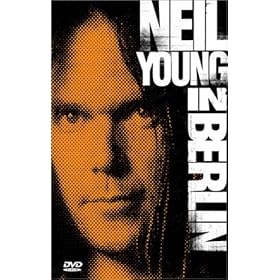
The Battle Of Algiers
Unflinchingly shows the horror of torture and terrorism, and suggests they are the inevitable outcome of colonialism. You can see why they announce the lack of any documentary footage, both for honesty's sake and to show off the realism. You can also see why the film has been accused of inspiring political violence, and why it was shown at the Pentagon in 2003.

Dahmer
The movie ignores the near-decade between his first and second killings (when he was flashing and fondling teens at state fairs) and the straight dude who got creeped out by his advances and called the cops is turned into a trusting twink, so it's tempting to accuse the film of pushing a "straight society made him into a murderer" platform. But the movie doesn't hide his monstrosity - we see him put his hand in a victim's chest cavity - so much as avoid the pious "no, you should NOT sympathize" moment most films on the subject matter soothe the audience with.
Dahmer may gloss over the depth and the duration of his sex criminality to make his sexual frustration more sympathetic, but the reason I feel conflicted about the streamlining and alterations is that it succeeds. Jeremy Renner's Dahmer is both yearning and sociopathic, while director David Jacobson plays up the homoerotic satisfaction of the murders, daring to lose the audience in order to show how Dahmer may have seen them. Anti-heroic trash like Hannibal should be more offensive to any viewer, but fictional amorality is treated differently than a film (especially a biopic) that aims for something other than nasty kicks. The proof of Dahmer's greatness may be how hesitant I am to call it great - that I'm searching for a reason to disqualify its effect.

Modern Times
Artful - if episodic - slapstick that's easy to overrate for its flagrant socialism. Paulette Godard's lively "Gamin" helps things from getting as saccharine as they can with Chaplin, but for 2008, this is still pretty sappy.

Neil Young: In Berlin
The last concert of Neil's Trans tour, and the last time he'd stomp around the stage with a voice modifier - instead of a guitar - miming to "Transformer Man." As for the old school chestnuts, the band isn't Crazy Horse, but Neil is still Neil, even with the new wave necktie. The movie also doubles as Nils Lofgren's E Street Band audition tape - has anyone done high kicks on Young's stage since?

Manic
The Good: Joseph Gordon-Levitt, Zooey Deschanel, Don Cheadle. The Bad: Every troubled youth cliche you can think of. The Ugly: Shaky-cam close-ups and nothing but.

The Pope Of Greenwich Village
'80s Mickey Rourke is such a magnetic douche (the missing link between early Marlon Brando and early Bruce Willis) that you have to forgive Eric Roberts for swallowing the scenery whole. After all, shouldn't the Johnny Boy in a Mean Streets knock-off be more attention-grabbing than the Charlie? Their nuttiness must have been contagious - Mean Streets knockoffs usually don't end with Burt Young doing somersaults, let alone "The Summer Wind."

The Laughing Policeman
A Dirty Harry movie without a right-wing hero, just two bickering cops wandering through a lurid maze. It's morbidly fascinating, but Walter Matthau is more fun in Charley Varrick and The Taking Of Pelham One Two Three, the crime films he made immediately before and after (after this crass trilogy, it's no wonder he stuck to Neil Simon and kids' movies for years after). The real star of the movie is Bruce Dern, who seems like he's trying to piss off anyone who dares to share the screen with him.

Sleuth
Laurence Olivier and Michael Caine play murder mystery mind games and scream about British social class for over two hours. Possibly entertaining if you also need forty-five minutes to figure out each thuddingly obvious twist.
No comments:
Post a Comment